How Long Do Yorkiepoos Live? [Yorkiepoo Lifespan]
As the loving owner of a Yorkiepoo, you want nothing more than to have your dog live a healthy, happy, and long life. But just how long can you expect your Yorkiepoo to live?
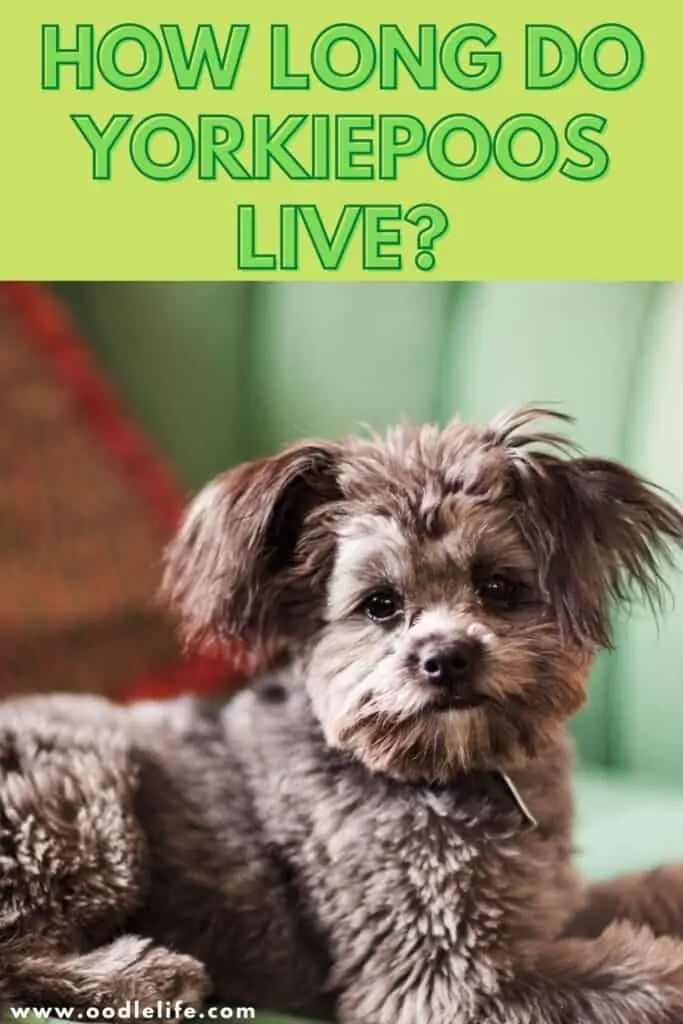
This guide provides information about the Yorkie x Poodle lifespans and explains what you can do to help extend them.
Average Yorkiepoo Lifespan
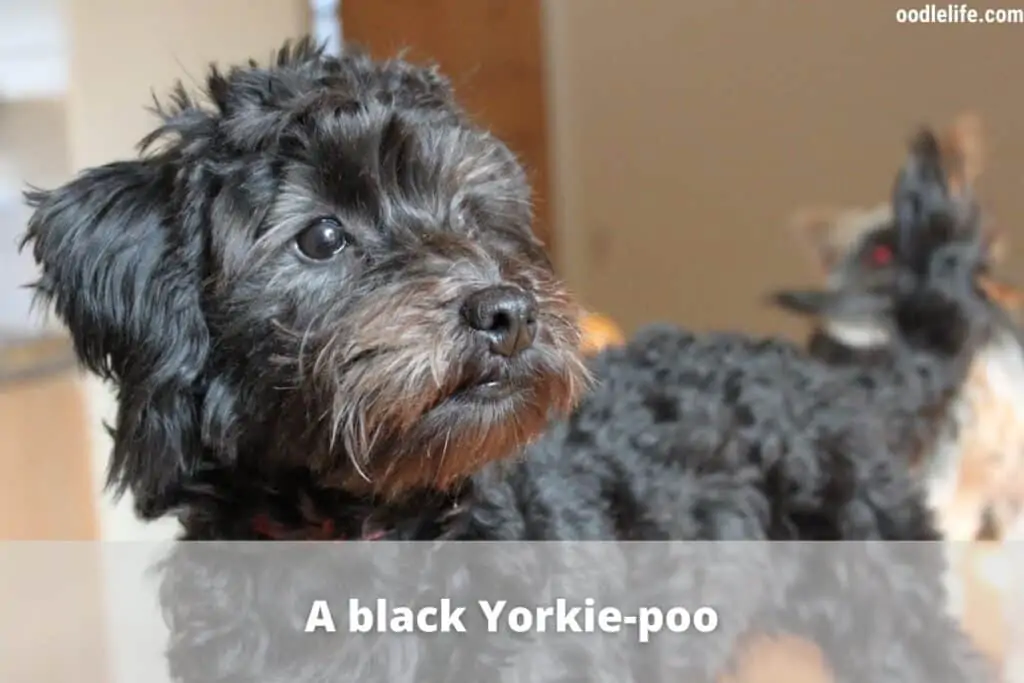
The average Yorkiepoo has a lifespan of 10 to 15 years. That said, longevity varies depending on factors like health conditions and maintenance. Basic care steps like feeding them a nutritious diet, encouraging exercise, and visiting the vet will help your Yorkiepoo live longer.
See how long Yorkies live, and how long Poodles live.
Just like other poodle mixes Goldendoodles and Labradoodles – the smaller the Yorkiepoo the longer the lifespan. A miniature or teacup Yorkiepoo will live the longest.
Health Factors That Can Impact Yorkiepoo Lifespan
Since Yorkiepoos are a mixed breed (between a toy Poodle and a Yorkshire Terrier), they are prone to health issues. Although Yorkiepoos are generally low-maintenance, they do require specific care to keep medical problems in check. Learn about some common problems below.
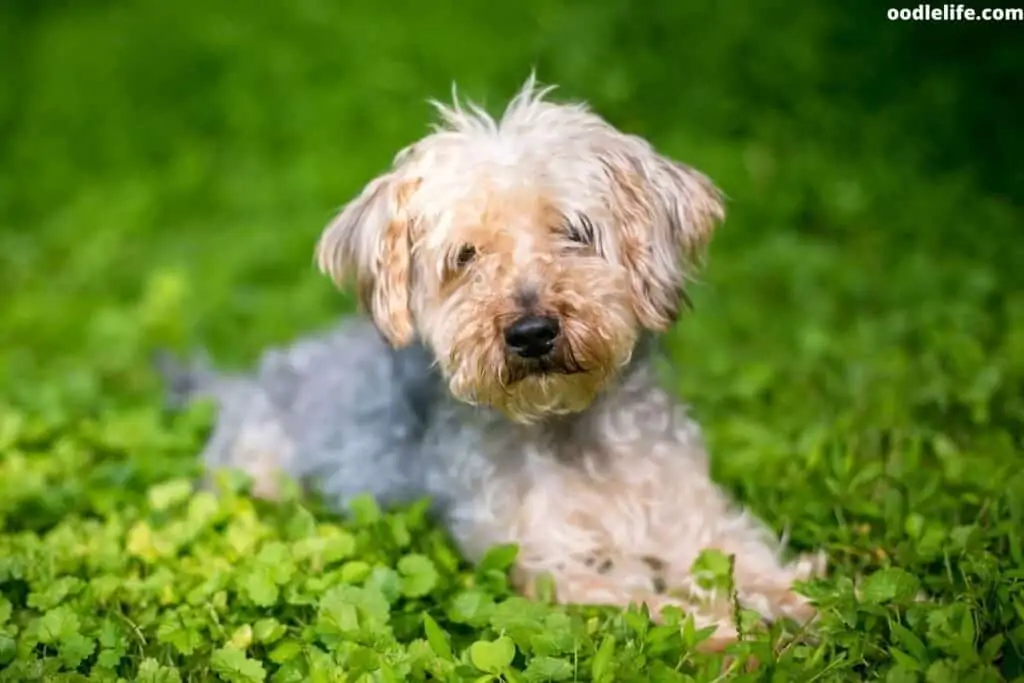
Epilepsy
Epilepsy is a seizure disorder that can cause unexpected and uncontrollable shaking and tremors in a Yorkiepoo. Sometimes, this is a sign of other underlying health problems that can be addressed, such as hypoglycemia.
Yorkiepoos are more prone to hypoglycemia—a condition characterized by low glucose levels—because they’re small and store less sugar. Seizures can be accompanied by other symptoms such as weakness, confusion, pale gums, and excessive drooling.
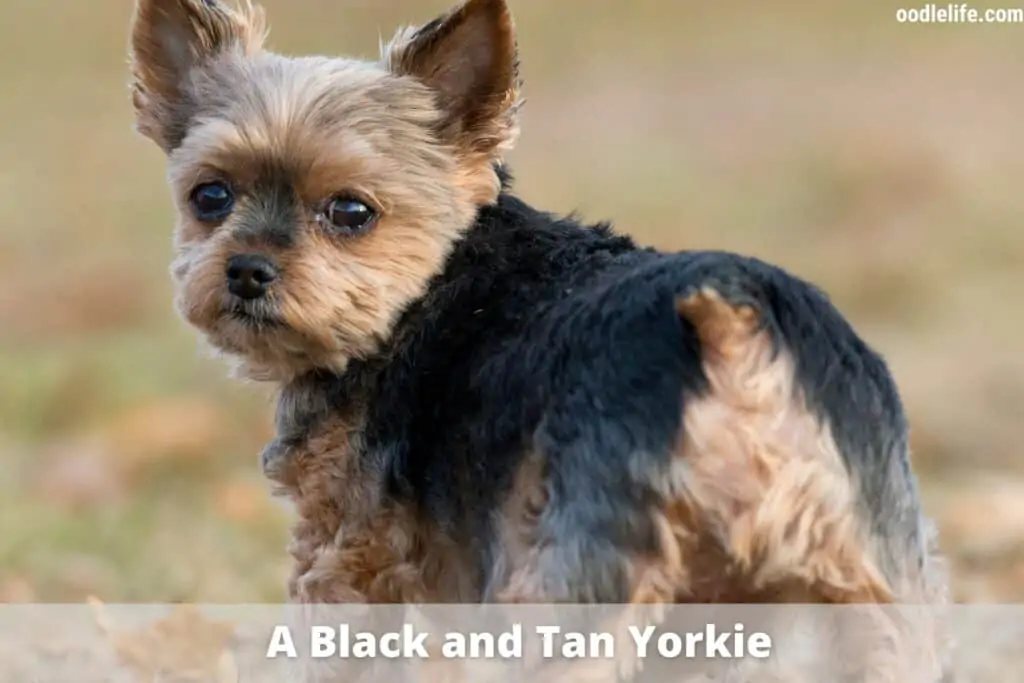
Atopic Dermatitis
Atopic dermatitis, also known as allergic dermatitis, refers to chronic skin allergies. Yorkiepoos may be genetically predisposed to certain types of allergic dermatitis (it’s prevalent in mixed breeds).
Symptoms of atopic dermatitis include rubbing, chewing, biting, licking, or scratching at the skin. Sometimes, the skin will be visibly damaged as a result, with oily or crusty lesions. In more severe cases, your pup may experience inflammation, patches of dryness, and hair loss.
Hypothyroidism
An underactive thyroid causes hypothyroidism. This endocrine disorder is pervasive in smaller breeds like Yorkiepoos. Since the thyroid produces various bodily hormones, hypothyroidism causes many physical systems to slow down.
Hypothyroidism symptoms include skin issues, lethargy, and fluctuating weight. You may notice your Yorkiepoo becomes less active and gains weight. The great news is that once hypothyroidism is diagnosed, it can usually be treated with dietary changes and medication.
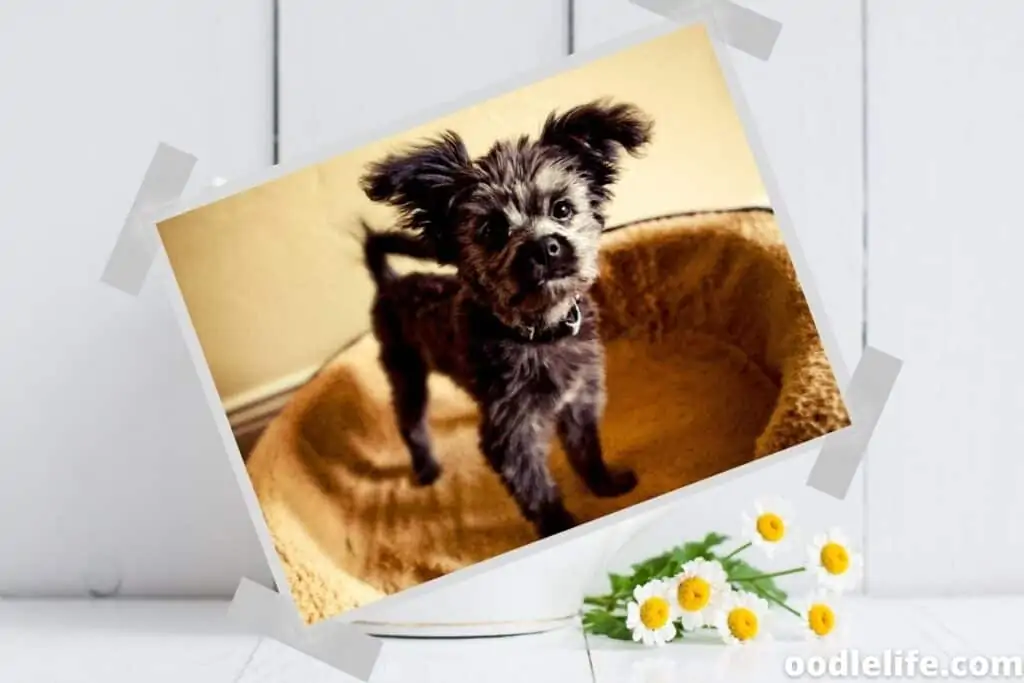
Hyperadrenocorticism
Pituitary-dependent hyperadrenocorticism, also known as Cushing’s Disease, occurs from an enlargement of the pituitary gland. This causes excess production of adrenocortical hormones, ACTH.
Symptoms of this disorder include muscle weakness, panting, lethargy, and heat intolerance. Dogs may also experience abdominal enlargement, resulting in a potbelly. In some cases, the condition may cause skin disorders.

Legg-Calve-Perthes Disease
This disease is common in mixed-breed dogs and is characterized by a disintegration of the hip joint. It causes the ball part of the ball-and-socket construction of the joint to degenerate, which leads to arthritis.
Without proper care, Legg-Calve-Perthes disease can cause the hip to collapse completely. Yorkiepoos with this condition may first exhibit a limp. This can later lead to complete lameness as the ailment becomes more severe and painful.
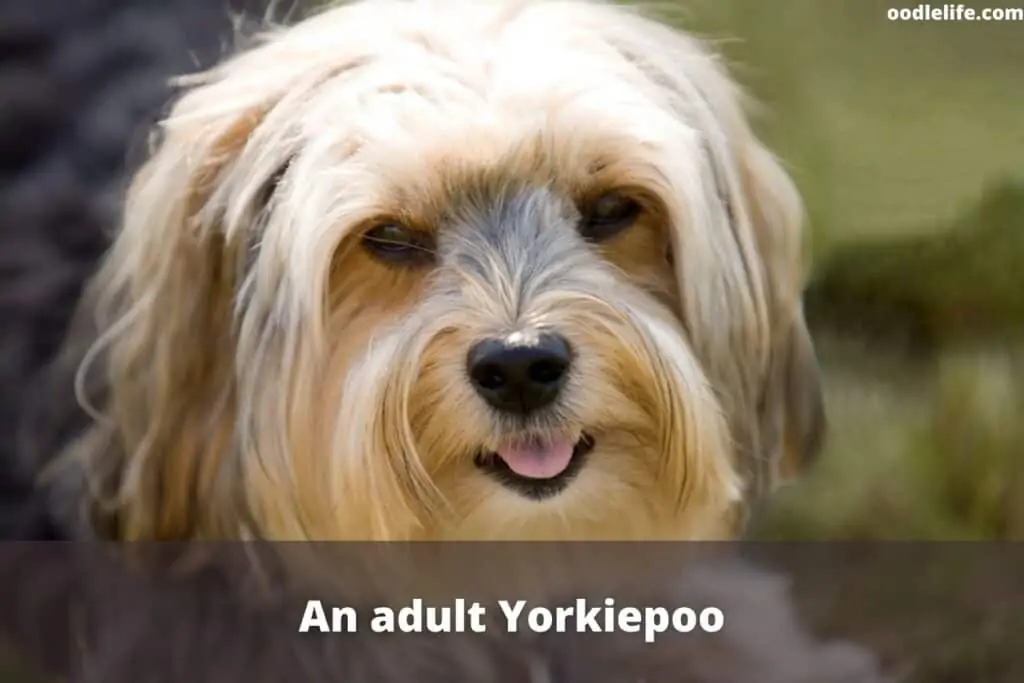
Portosystemic Shunt
A portosystemic shunt is characterized by a faulty connection of the portal vein. This vein gathers blood from the dog’s gastrointestinal system, spleen, and pancreas and transports it to the liver.
A liver shunt can exhibit signs like poor muscle development and stunted growth. Yorkiepoos may also exhibit strange behavior like feeling disoriented, walking in circles, or staring into space. In some cases, they may have seizures.
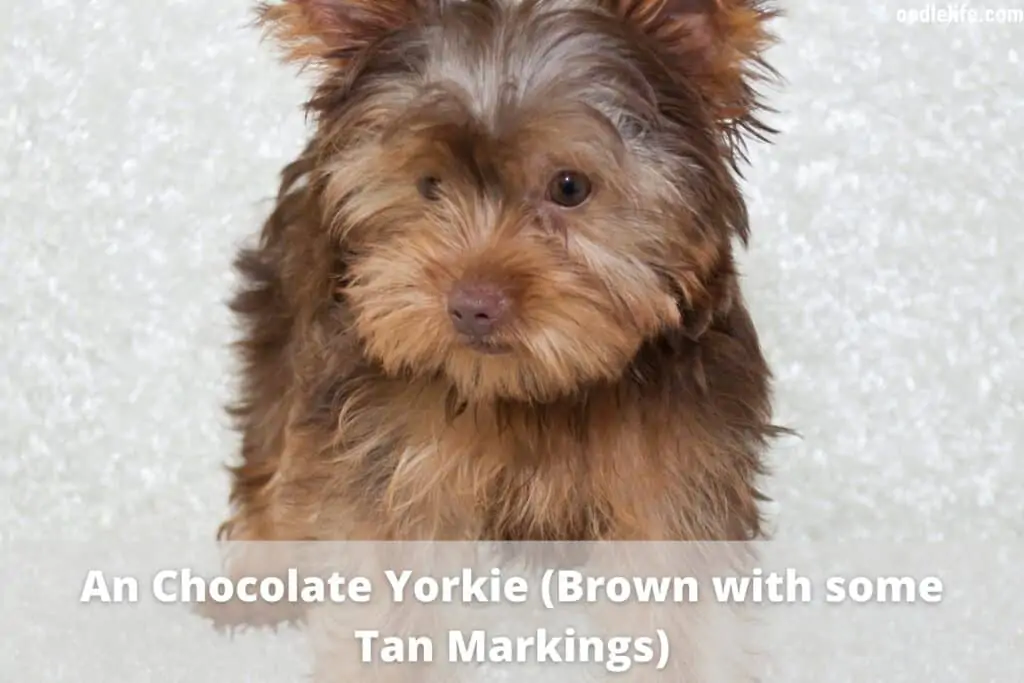
Patellar Luxation
This is the medical term for kneecap dislocation. This usually is due to a congenital disability and is more common in smaller dogs, including Yorkiepoos. In more severe cases, kneecap dislocation may require surgery.
(Ever wondered if dogs have knees OR elbows? We found out!)
Symptoms of patellar luxation may include limping, lameness, or not bearing total weight on the affected leg. In addition, your Yorkiepoo may develop an unusual gait. They may also become less active, refusing to play or go on walks as usual.
How to Keep Your Yorkiepoo Healthy
As a pet parent, you can help keep your four-legged friend healthy by investing in their maintenance. Follow these tips to help ensure your Yorkiepoo stays fit and goes on to live a long and happy life.
Feed Them a Healthy Diet
Your Yorkiepoos dietary requirements will depend in part on their size and weight. Consult a veterinarian regarding an appropriate feeding regimen. Overweight dogs may be more prone to some health issues, like kneecap dislocation.
Just as important as how much you feed your dog is what you feed them. High-quality dog food with the proper nutrient balance is essential. Look for all-natural dog foods with vegetables and chicken. Try to avoid ingredients like corn, wheat flour, chicken by-product, and soy.
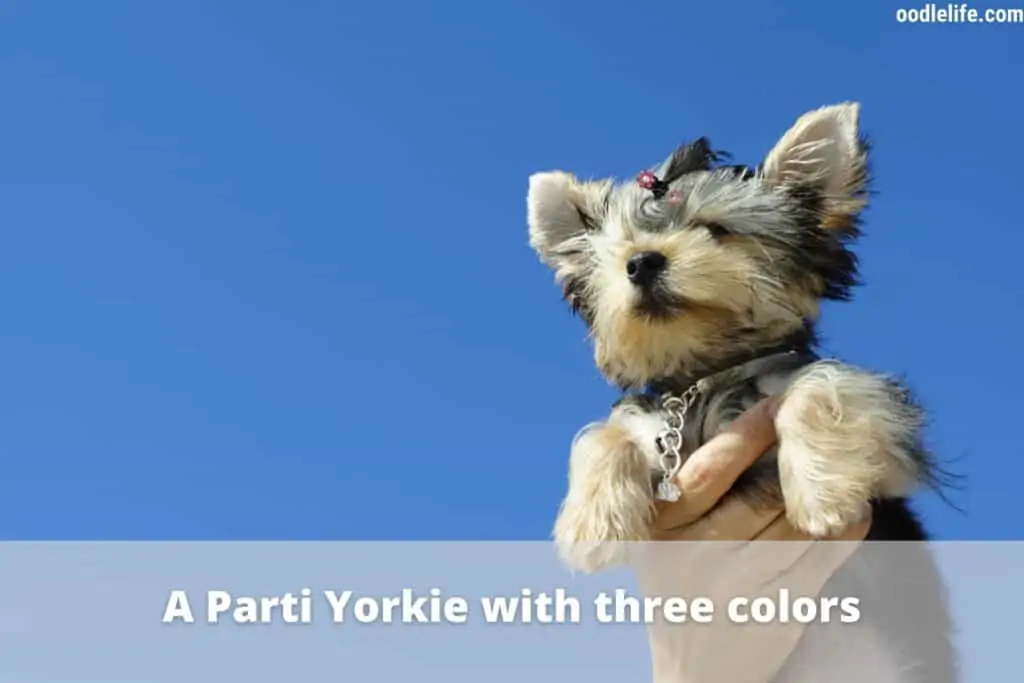
Encourage Plenty of Exercise
Yorkiepoos don’t require as much exercise as other breeds. However, it’s still essential for them to get sufficient physical activity. The great news is that these pups are naturally reasonably active, so you don’t have to stress about getting them moving.
Yorkiepoos can often meet their physical activity requirements from running around the house, playing with the kids, or chasing the family. Try to take your dog for a 20 to 30-minute walk every day to keep them in peak condition. You can also get them moving by playing games.
Maintain Routine Veterinary Visits
As a Yorkiepoo owner, it’s essential that you can recognize symptoms of illness like those described above. Identifying signs early will ensure that you can get your pup the medical care they need. That said, it’s also important to schedule regular veterinary checkups.
A veterinarian has the knowledge and diagnostic tools to recognize ailments earlier. Veterinarians can also provide valuable advice about points like what kind of dog food to provide. Routine visits to a vet will help you give your Yorkiepoo the best quality of life possible.
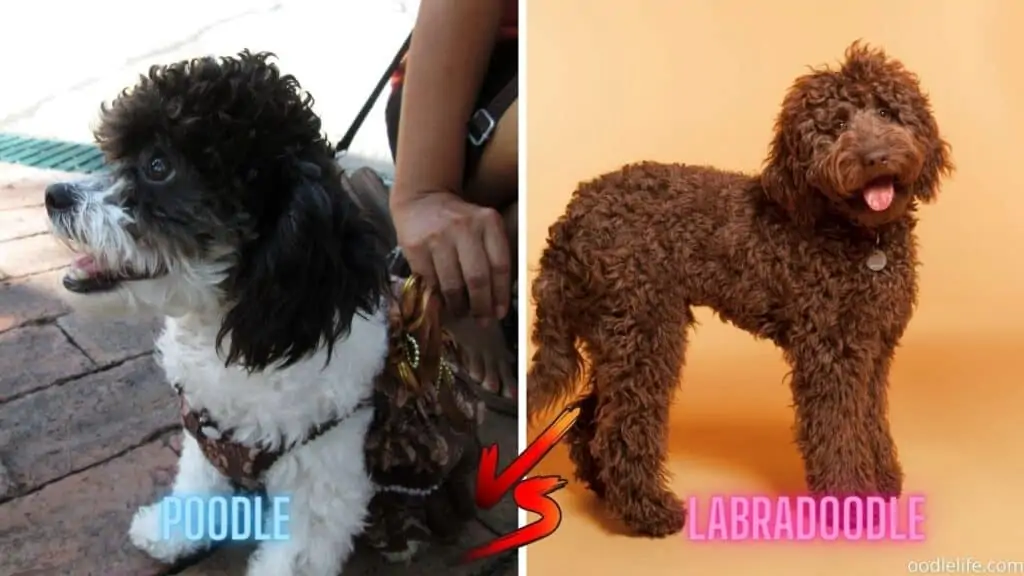
The Final Word: How Long Do Yorkiepoos Live?
The average Yorkiepoo lives 10 to 15 years. However, your actions as a pet owner make a big difference in your dog’s longevity. From feeding your dog a healthy diet to helping them get exercise, your efforts make a difference. Trust the tips above to help.